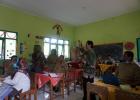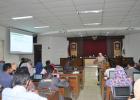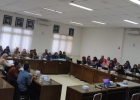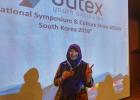You are here
Training on Developing Deep Learning-Based Assessment Instruments Enhances Teachers’ Competence in Pengasih District
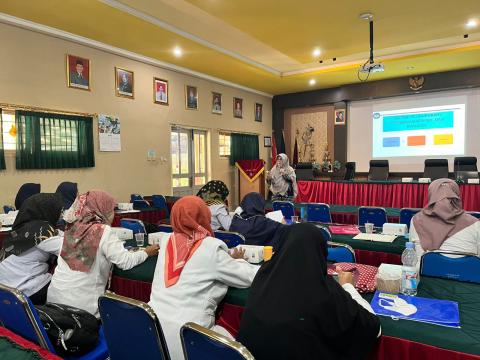
A total of 25 teachers from elementary to senior high and vocational schools in Pengasih District participated in a Training on Developing Learning Assessment Instruments with a Deep Learning Approach, held in Padukuhan Serut, Pengasih, Kulon Progo, on September 3, 2025. This activity was part of a community service program (Pengabdian kepada Masyarakat / PkM) aimed at enhancing teachers’ capacity to design assessments aligned with 21st-century learning needs.
The training featured expert speakers from academia with extensive experience in learning and assessment development. Prof. Dr. Muhammad Nursaban opened the main session with a presentation on the concept and application of deep learning in teaching and learning. He emphasized the importance of fostering learning that goes beyond memorization, encouraging critical thinking, problem-solving, and students’ reflective abilities.
The next session, delivered by Dr. Widihastuti, M.Pd., discussed strategies for developing educational assessment instruments. Dr. Widihastuti highlighted that deep learning-based assessments should capture students’ abilities comprehensively, covering cognitive, affective, and psychomotor domains.
Other presenters continued with advanced topics, including techniques for designing scoring rubrics, examples of authentic assessment instruments, and practices in developing project- and case-based test items. Participants also engaged in hands-on activities to create assessment instruments relevant to their respective subjects under the guidance of facilitators.
The activity coordinator expressed that this training is expected to help teachers adapt their curriculum and evaluation methods toward more in-depth learning processes. “Teachers need to continuously enhance their capacity so that the assessments they design not only measure basic knowledge but also evaluate higher-order thinking skills,” she stated.
Participants responded positively to the program, noting that the materials were highly relevant to current educational challenges. They also expressed hope that similar training would be conducted regularly to further strengthen teachers’ competence in developing effective assessment instruments.
This PkM initiative not only served as a platform for knowledge sharing but also reinforced collaboration between universities and local communities in advancing the quality of education at the regional level.
PERPUSTAKAAN
SISTEM INFORMASI
KONTAK KAMI
SEKOLAH PASCASARJANA
Kampus Karangmalang, Yogyakarta 55281
Telp. +62274-550836 (front office)
Fax. +62274-520326
Email: pps@uny.ac.id, humas_pps@uny.ac.id
Website : http://sps.uny.ac.id
FB: pascasarjana UNY
IG: spsuny_official, s2pep_uny
Twitter: OfficialUNY
IG S2 PEP: s2.pep_uny
Copyright © 2026,

